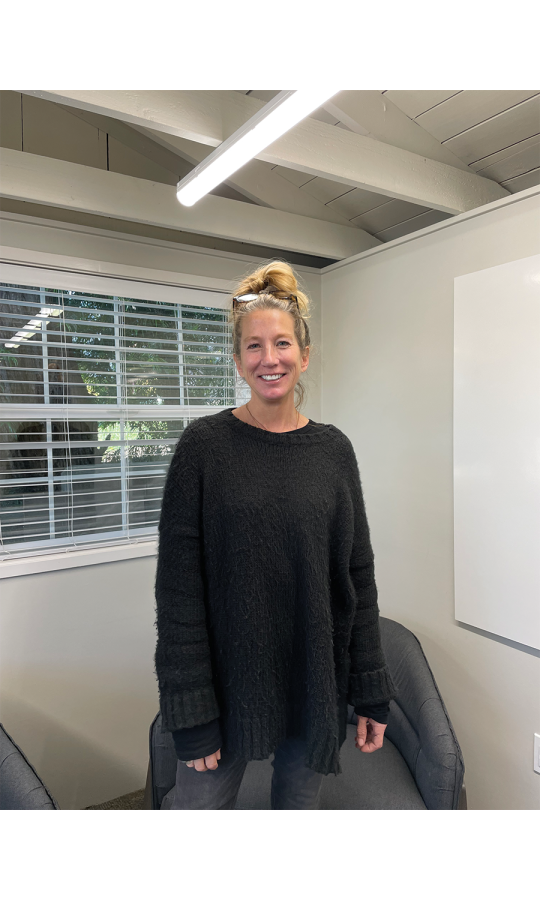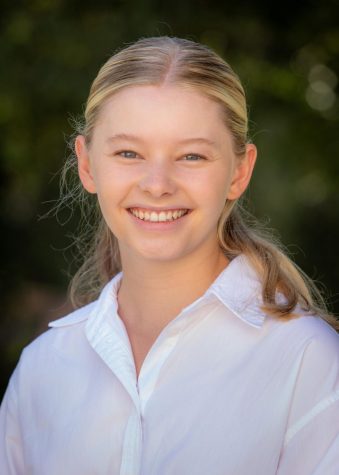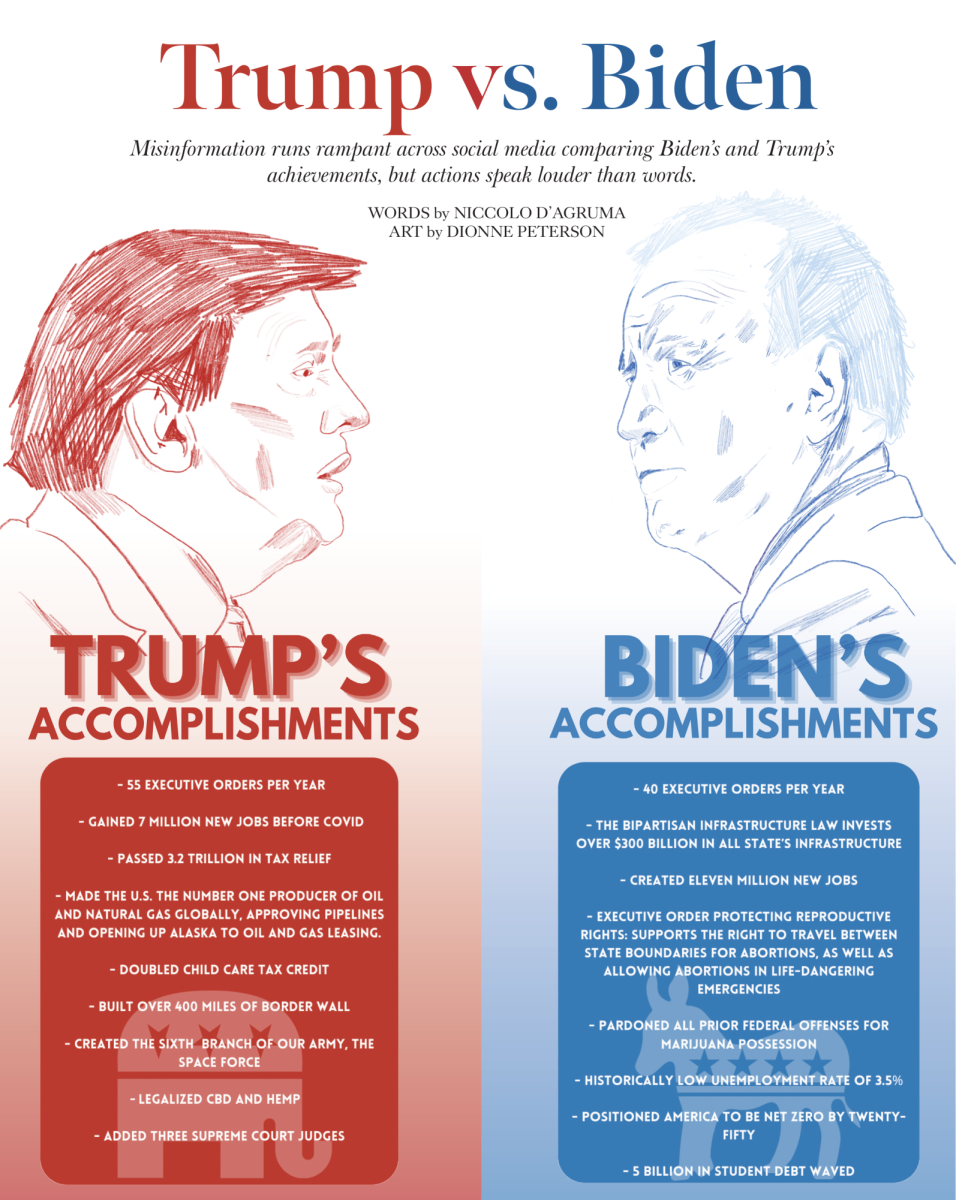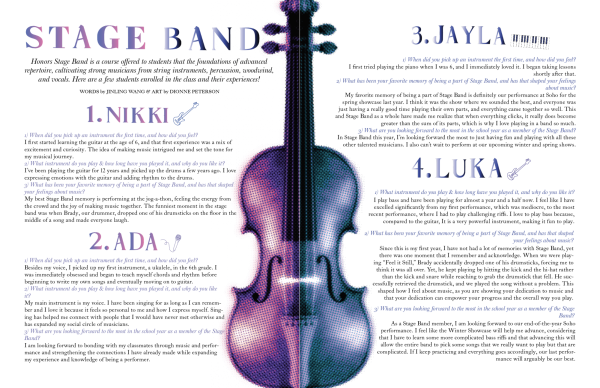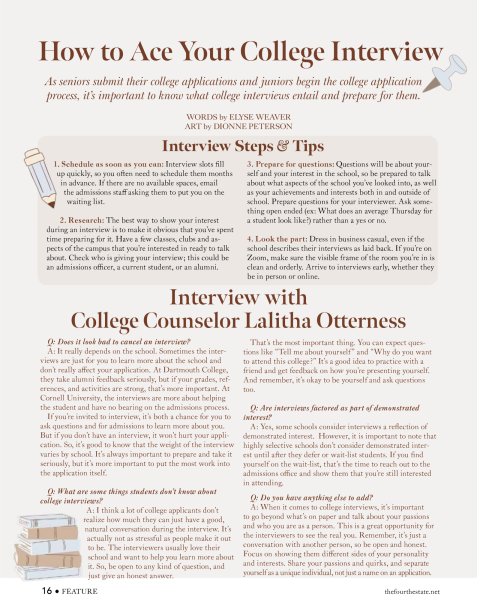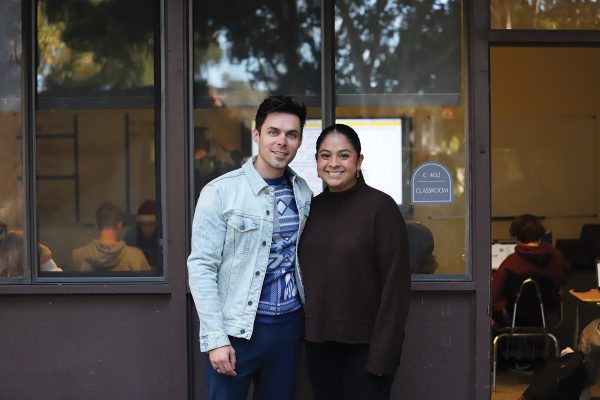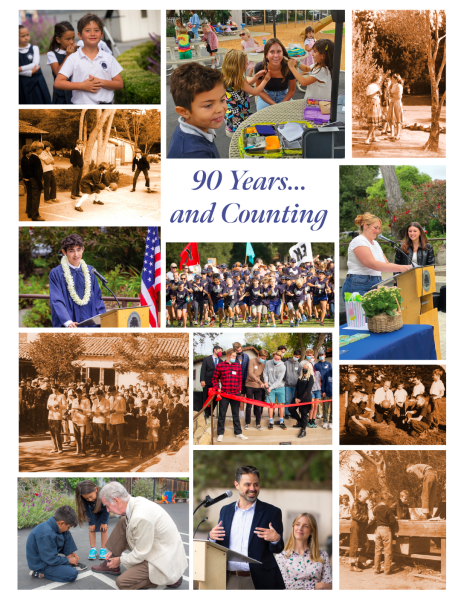The Future of the English Department
An in-depth interview with English Department Head Victoria Dryden on the next steps and goals for the department.
March 10, 2022
Q: What are your responsibilities as the English department head?
A: One is administrative tasks and meetings, going to meetings, leading meetings, and meeting with parents, with teachers, observing teachers, interviewing prospective hires, offering faculty support, and taking on curricular leadership.
Those are the big areas. I think it is all about regrouping and recovery after the pandemic—how can we work together and collaborate in a way that was disrupted by COVID?
Q: How much of a hand do you have in text selections? Or is it more collaborative?
Head of the English Department, Victoria Dryden in the Writing Center. 18 • FEATURE
A: The first thing I’m doing is asking every teacher per grade level to write a skill list detailing what skills are being focused on in that grade level.
And then, once that’s done, I want us to look horizontal and then vertical. After we do the skill progression, I’m trying to create a shared document on “how to teach writing” or “what we’re looking for in writing” that’s through the entire department.
So that everyone is using the same language, common structure for essays, and common expectations, and a progression.
In order for each teacher to choose a writing focus that builds on the focus from the previous year and then prepares the student for the following year.
There needs to be a collaborative, common idea with one form, similar rubrics, and similar objectives. And then, my big thing this year is a text audit.
To understand the world, you have to hear everybody’s perspective; traditionally, we haven’t. At least 15 or 20 years ago, it was one voice if you developed a curriculum. This is all about the canon and who created it, and why, and what voices were left out and why.
We need to understand our relationship to each other and our relationship to the community just as much as we understand who we are as individuals.
Q: What first made you passionate about teaching English?
A: I became an English teacher because I liked hearing stories and telling stories and getting lost in those stories.
But, later, I saw literature as a vessel for an understanding of what it means to be a human and using literature to understand other people and oneself and how one interacts with other people and then, politics and gender and religions and protests and revolutions, and dreams, and all the messy stuff of life.
Q: What are you changing, or hope to change, structurally about the department?
A: I feel like the nation is changing, at least from my perspective. And so departments, education, and academia need to be fluid with that change. We are now at an integral point in history. We have to scramble to reassess what is being taught and how it’s being taught.
I don’t know that I’m structurally changing anything, except I think we all need to regroup and think about what we are doing, why, and how we are doing it.
As the SAT and standardized testing fades away, we can’t just keep plodding along and not be regrouping to realize how we must change to accommodate the changing world and to prepare students for college, because college is changing.
None of us can understand that yet. We do not know what the other side of the pandemic is going to look like yet. Students have lost years of learning from remote classrooms. Students have access to technology that changes perspectives and reality. The United States is becoming increasingly polarized. Travel and global connections have been limited to some degree.
New movements and voices are emerging. There are so many changes that this generation of students will understand as their normal. And there are so many unknowns.
School now needs to adapt. You need to learn about people that are speaking right now. You need to know, understand, question, accept and reject what is being said and done. And literature both fiction and nonfiction opens up that exploration in a way that matters now.
Q: As the school continues to bolster our STEM programs, how do you think English can work to carve out more of a substantial place at the school?
A: I feel like there is so much to explore in the humanities. Using art or literature to bring change and fight oppression is something we’re existing in right now. But it’s always been a part of resistance, right? Art, music, philosophy, literature… these are important aspects of society. How can we explore them at school? I see humanities as a way to connect with the community. I’d love to see Laguna do that through the Humanities program.
We can study and read and talk, but what about action? How can the English and Humanities program offer students a way to take what they know and learn and then apply it or rather experience it in the community that surrounds us?
How can our learning of art, philosophy, law, literature, and music become a tangible experience?
When I taught Humanities at my old school, every class I taught had some connection—some physical interaction with the community surrounding us OR a community we could interact with in some way.
I think STEM does that—there are internships and research programs and connections with UCSB.
Humanities should have those opportunities and connections too. Students need this and the community will benefit.
This is one way to enrich our lives. Students can exist within the intellectual, but then also step out of their comfort zone and connect the intellectual to action. It seems so off-balance to have one side that offers too much and have a couple of English choices that limit you as a student going into the world.
Q: Do you think we offer a wide enough variety of English AP classes?
A: My preference would be for more rigorous English electives rather than worrying about how many APs we have. I think everybody would be engaged, inspired, and challenged if they took really interesting, rigorous English electives. I think that’s what the school is moving towards too, as that is a topic of conversation that comes up a lot: Should we have more choice for students in English? My answer is yes.
Q: Why did you think it would be valuable to revive and strengthen the Writing Center?
A: I think student tutors are really important for the tutors themselves. You learn a lot from peer editing while building your writer skills.
Collaboration with younger students is powerful. And the writing process is a process. And when you’re just in your class as students, my impression is that students often write the essay the day before it’s due, and often don’t revise because they’ve lost interest by the time they get it back. I think the Writing Center could be that one-on-one instruction for the writing process. We are always learning from each other—and this is never more true than in the writing process. Writing is not supposed to be an isolated endeavor. It’s about connecting with other human beings through ideas. That’s what the vision is [for the Writing Center.]
Q: What’s something you are looking forward to for the department?
A: The English Department is trying to figure out when we will hold our full-day retreat with Lorena German (!) from Disrupt Texts to examine what we are teaching, why we are teaching it, and how we are teaching it. We will exam what voices and what perspectives we include in our curriculum and why. It is about critical thinking, discussion, challenging each other, opening our minds to different viewpoints and becoming viable contributors to the world.
I was so privileged to teach the now senior class my first year at Laguna. I want nothing more than all of you—all of our students—to be ready and to be prepared to accept, challenge, and sometimes change what you confronts you. There is more to be learned in the English classroom than reading of books from the established canon. My students have taught me that.



